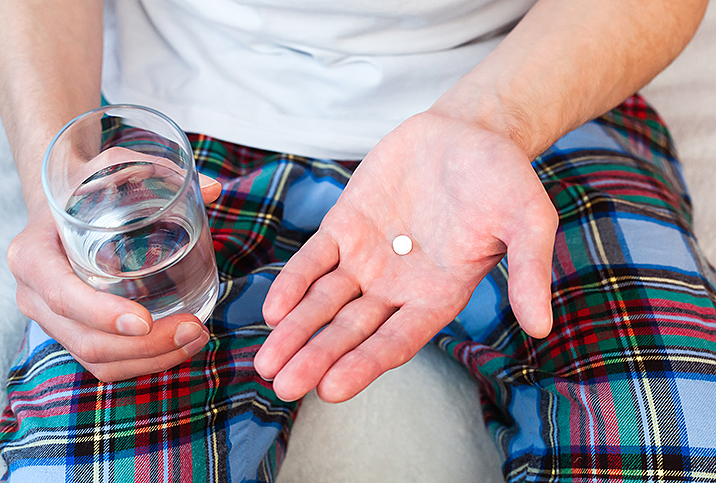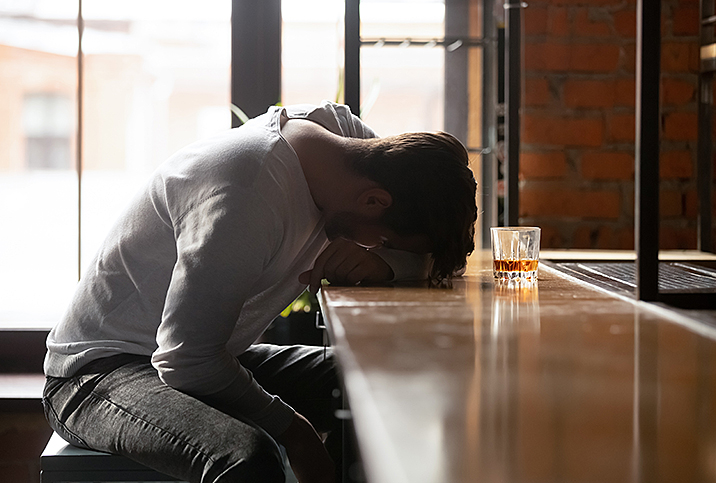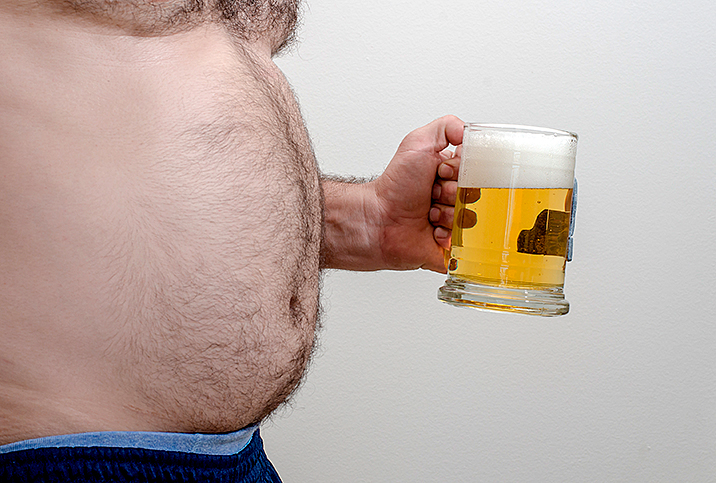How Alcohol Can Interfere With Mental Health Medications

Serena is a 52-year-old writer and mother of two living in New York. She was diagnosed with bipolar type 2 disorder in 2005. As of now, she takes five different medications, such as antidepressants and mood stabilizers, to manage her condition. Throughout her illness, she consumed alcohol with the impression it helped quell symptoms of anxiety and mood alterations.
Like many people, Serena said her drinking significantly increased during the pandemic. Unfortunately, her bipolar 2 symptoms became markedly worse to the point that nothing, not alcohol nor medications, could improve her symptoms. Serena, who requested her full name not be used, eventually decided to get sober when she suspected alcohol might be the reason for her sharp decline. Indeed, her illness greatly improved once she worked through the sobriety process.
In hindsight, Serena said she felt her medications never fully worked when she was drinking, even when the habit was less severe. However, once she got sober, she noticed a dramatic improvement in her illness and felt the medications finally did the job.
"My anxiety was so severe that I believed I had to drink to calm down to a level where I could function, but the alcohol was actually causing even more anxiety and instability," she said. "It's a relief to have my medications actually work now."
Stories like Serena's may be very common as both mental illness diagnoses and alcohol use have been steadily rising over the past few decades. According to the National Alliance on Mental Illness, 21 percent of adults in the United States experienced mental illness in 2020, and 5.6 percent of U.S. adults experienced it at a serious level. By estimates from the National Institute on Alcohol Abuse and Alcoholism, 85.6 percent of adults drink alcohol at some point in their lifetime, and as of 2019, nearly 15 million people ages 12 and older had alcohol use disorder.
These are not heartening statistics, and the research concerning alcohol's effect on mental health medications and treatment hasn't kept pace with the increase.
Are there benefits to alcohol use?
Experts know alcohol can and does interfere with many classes of medications, such as antibiotics, cholesterol-lowering agents and analgesics, to name a few. There's evidence alcohol affects the action of mental health medications including tricyclic antidepressants, MAO inhibitors and anxiolytics, such as benzodiazepines. However, little research has been conducted on the most common selective serotonin reuptake inhibitors (SSRIs) and mood stabilizers.
Even without a wealth of data, psychiatrist Mark Rego, M.D., still believes it is not helpful to use alcohol with mental health medications. Rego is a consultant to small community clinics in Connecticut who treats underserved patients and teaches at the Yale School of Medicine. In his 30 years of practice, he never saw any patients benefit from alcohol use.
"I have seen many people who were stable due to antidepressant treatment who came in with a partial or complete return of their symptoms," he explained. "Initially, we couldn't find a reason for the relapse and were planning a change in medicine. But in detailed history-taking, it turned out that they had begun to have a glass of wine with dinner each night. When this stopped, the medication response returned."
Interestingly, Rego noticed this adverse effect came from even small amounts of alcohol, but he also observed that the therapeutic effect of medication seemed to be entirely derailed for people who were chronic heavy drinkers. However, he noted very little exists in the research as to how or why alcohol affects mental health medications.
Just follow the rules
Rather than affecting medication, alcohol itself may exacerbate most mental health conditions. While experts don't know for sure if alcohol decreases the effect of prescription treatments, it is known that alcohol worsens and can cause mental health issues.
Though not proof of a causal relationship, a 2019 study noted the prevalence of most psychiatric disorders is higher in people with alcohol use disorder than in the general population. To date, few studies have examined which comes first, the alcohol use or a psychiatric disorder, but experts say each issue exacerbates the other. This could be because alcohol can "override" the effect of medications, causing the nervous system to become dysfunctional, which worsens mental health, Rego said.
Nonetheless, since we know how dangerous alcohol is for many classes of medications, it makes sense to infer it would prove an unhelpful agent to combine with mental health medications. Indeed, Rego advised patients not to combine alcohol with their medications.
Alcohol should especially not be used in anyone taking benzodiazepines, such as alprazolam (Xanax), clonazepam (Klonopin), and lorazepam (Ativan), as they all work on the same receptors of the nervous system.
Another important factor to consider is how alcohol and medications affect the health of our organs. Since many mental health medications can be hard on the liver and pancreas, adding alcohol could prove physically dangerous, especially as chronic and heavy use over time can damage these organs. Some of the symptoms of liver damage from alcohol are anxiety, depression and problems with cognitive skills and memory.
Knowing alcohol and mental health do not mix well, it's important for people to assess their drinking habits if they suffer from a psychiatric disorder. Rego developed an innovative tool, the "Rego Rule of 2s," to help patients assess their drinking habits. If you drink no more than two drinks and never two days in a row, then you may not have a drinking problem. However, if you can't stick to the rule of 2s, then it may be time to take a deeper look at your drinking habits, especially when taking mental health medications.


















